Team careers360
Industry focus, verifiable skills, cutting-edge knowledge are the primary drivers of these unique courses, which come cheap at about less than Rs 4-5 lakh for a 2-year programme, but offer careers which are comparable to the costlier MBA.
Modern day industry has propelled the demand for a slew of new courses spanning a varity of disciplines, cutting across industries.
For Melatthur Ramanathan Poduval, the choice couldn't be better. The Geography graduate was a topper of Kerala University. He did not want to go for a general MSc programme and computing excited him. He opted for the geoinformatics programme and has never looked back. He passed the Master's programme, worked with ISRO for a few years and is currently research lead in a private GIS company in the USA. The programme was very application-oriented he reminiscences. "We were forced to solve problems from day one and concepts flew from there," he asserts.
From instrumentation to medical biotechnology interdisciplinary is the way today. They give you basic grounding on the science involved and then train you rigorously on the technologies and the applications. Some like the Global Business Opportunity are business-oriented but are still unique in their offerings. And most of them do come cheap at about less than 4-5 lakhs rupees for a two-year programme, but offer careers which are comparable to the costlier MBA. They are worth a try.
MSc Geoinformatics
Institute: Indian Institute of Remote Sensing, Dehradun
Duration: 18 months
Fee: Rs 2.50 lakh (Self-sponsored Indian Candidates), $ 4500 (Foreign Candidates), Rs 2.50 lakh for travel and living in India and the Netherlands (Indian government-sponsored candidates)
Eligibility: First division in MSc/M.Tech (Physics, Mathematics, Statistics, Geology, Geography, Geophysics, Meteorology, Oceanography, IT, Agriculture, Urban & Regional Planning, MCA (with science), Natural Sciences, RS & GIS or equivalent)/or, BE/B.Tech. Degree (4 years) (Civil Engineering, Computer Science, Computer Engineering, IT, ECE, Agriculture Engineering, BSc Agriculture or Forestry, Geoinformatics or equivalent)
Address: Indian Institute of Remote Sensing, Indian Space Research Organisation, Dept. of Space, Govt. of India, 4, Kalidas road, P.B.No. 135, Dehradun-248001, Uttarakhand, India.
Website: www.iirs.gov.in/index.php
Other institutes: Osmania University, Hyderabad, Institute of Geoinformatics and Technology, Gurgaon, Symbiosis Institute of Geoinformatics, Pune, and more.
MSc in Geoinformatics trains students to administer geographic databases and work towards maintaining and developing spatial data (maps in the computer domain). It also familiarises students with the models and technologies related to Remote Sensing and Geographical Information System.
The course is structured in 15 theoretical modules and includes six months of Research MSc, research dissertation & Thesis defence at IIRS. The theoretical modules include Principles of Remote Sensing, Geodata Modelling & Processing, Web GIS Mapping & Programming, Visualisation and dissemination of Geospatial data and so on. This course will enable students to make a career in all the GIS and RS companies like Indian Space Research Organisation, National Mapping Organizations, State Remote Sensing Centres, Disaster management cell/centre, Spatial data Dissemination centres in India and abroad.
Click NEXT for more
10 cheap and innovative alternatives to MBA
MSc Instrumentation Science
Institute: University of Pune
Duration: 2 years
Fee (per year): Rs. 43,542 for students from Maharashtra, others: Rs. 57,942
Eligibility: BSc in Physics/Electronics/Instrumentation Science/ Computer Science/Vocational Physics/Electronics or BE (E and TC)/Instrumentation
Address:Department of Instrumentation Science, University of Pune, Ganeshkhind Road, Pune - 411 007, Maharashtra State, India.
Website: www.unipune.ac.in
Other institutes: Jiwaji University, Gwalior, VIT University, Vellore,
The MSc in Instrumentation at University of Pune aims at utilisation of established research ideas to rationally convert those into simpler and advanced instruments. The performance of the Research and Development (R & D) section of any industry or research organisation is directly proportional to the availability of advanced instruments. This calls for well-trained persons to design and develop the appropriate instruments for the purpose and also maintain and repair them, whenever required.
The course adapts the students to the maintenance of sophisticated instruments. The course is taught in credit system. It has an average of six modular courses per semester. The students also participate in a seminar course that helps them develop communication skills. The course includes guest lectures on financial and industrial management. The students are also supposed to undergo an industrial training in an industry/R & D organisation nearby Pune for 2-and-a-half to 3 months. They also need to work on a project in an industry/R & D organisation for 6 months. Successful candidates can look for job opportunities in various thermal power stations, refineries, steel plants and also as project engineer trainees or technical assistants in organisations like Indian Institute of Astrophysics.
Click NEXT for more
10 cheap and innovative alternatives to MBA
Image: MSc in Applications of MathematicsMSc in Applications of Mathematics
Institute: Chennai Mathematical Institute
Duration: 2 years
Fee: Rs. 4,800 (for two years)
Eligibility: BSc degree in Mathematics, or degrees such as BSc Physics, BSc Statistics, BE or B.Tech with good knowledge of Mathematics. Final year students are also eligible to apply for the course.
Address:Chennai Mathematical Institute, Plot H1, SIPCOT IT Park, Padur PO: Siruseri 603 103, India
Website: http://www.cmi.ac.in
Other institutes: Osmania University, University of Roorkee, Kurukshetra University, University of Pune, and more.
MSc in Applied Mathematics is a specialised form of pure Mathematics which enables students to formulate and understand mathematical models for real-life problems. Through the application of skills in equations, probability, applied algebra one can perform operational research for various sectors like communication systems, aircraft, automobiles, supply chains, logistics, etc.
Chennai Mathematical Institute (CMI) initiated this course in 2010. The first year of the two-year course comprises two semesters and includes course work. Unlike other MSc programmes at CMI that are generally divided into four semesters of over two years, the second year of the MSc in Applications of Mathematics is different. The second year comprises two shorter terms followed by an internship or project. The two-year programme currently deals with financial mathematics and applications in computation. Successful students can apply for jobs in both the government and the non-government sectors like IBM Corporation, Boeing; Ford Motor Co, etc, GlaxoSmithKline, Google, Inc, McKinsey & Company, etc.
Click NEXT for more
10 cheap and innovative alternatives to MBA
Image: Global Business OperationsGlobal Business Operations
Institute: Global Business Operations, Shri Ram College of Commerce (SRCC), Delhi University
Duration: 2 years
Fee: Rs 7,500 for each semester
Eligibility: 50 % in Graduation. Final year students are eligible to apply.
Address: Global Business Operations, SRCC, University of Delhi, Maurice Nagar, New Delhi - 110007
Website: www.srcc.edu
The Global Business Operations course orients students in the field of Human Resources Management (HRM), Accounting and Finance, Trade, Transnational Marketing and Information Technology. With the expansion of the country's economy across borders, it has become an absolute necessity to understand the changing scenario of the economy of one's home country with respect to the global economy. The growth of a market-oriented economy combined with new business models calls for expert manpower that can understand, analyse, manage and come up with new business models and strategies to meet the demands of the recent emerging trends.
The course at Shri Ram College of Commerce (SRCC) is conducted through seminars, case studies, role-plays, management games, quizzes. The faculty comprises professors from University of Delhi, Delhi School of Economics, Department of Commerce, Faculty of Management Studies and also representatives from top B-Schools of the country. The course is conducted in four semesters. The students need to undergo summer internship for two months at the end of the first year. They also need to do a winter project with an organisation. The successful students get a Post Graduate Diploma from Delhi University. The students can get placement opportunities in sectors like Banking, Human Resources, Marketing research etc. Some of the companies that recruit students from the campus are GE Money, Standard Chartered, Pipal Research, Trident Group, etc.
Click NEXT for more
10 cheap and innovative alternatives to MBA
MSc Public Health Entomology
Institute: Vector Control Research Centre (VCRC), Puducherry
Duration: 2 years
Fee: For Indian Nationals: Rs 5,948
Eligibility: BSc (Zoology/Botany/Life Sciences/Medical Laboratory Technology/Microbiology/Biochemistry), BVSc, MBBS, or BE/B.Tech, with Biotechnology as one of the subjects with a minimum of 50% marks for General/Unreserved/OBC and minimum 40% marks for SC/ST.
Address: Vector Control research Centre
Medical Complex, Indira Nagar, Puducherry - 605006
Website: http://vcrc.res.in
Other institutes: Master of Public Health (Field Epidemiology) affiliated to the Guru Gobind Singh Indraprastha University, Delhi
MSc Public Health Entomology trains students on modern approaches of epidemiology and control of vectors and vector-borne diseases like malaria, filariasis, dengue, plague, tick and mite-borne diseases, etc. The growth of vector-borne diseases in tropical countries calls for expert manpower that can plan and implement control measures at various levels. Vector Control Research Centre (VCRC) is a collaborating Centre with World Health Organization for research and training in lymphatic filariasis and integrated methods of vector control. The students get to learn about vector-host- pathogen relationships in arthropod-borne diseases, observe and diagnose such diseases with the help of modern tools, rationalise use of pesticides, develop Integrated Vector Management strategy, etc.
The course is divided into two parts of two semesters each. The students need to complete a project/dissertation at the end of semester 4. Outstanding students get an opportunity to undergo a one-year internship at VCRC, during which they will be entitled for a stipend. This course can open gateways to careers at World Health Organisation, departments of health services in India and abroad and also in various NGOs working in the field of public health.
Click NEXT for more
10 cheap and innovative alternatives to MBA
Image: MSc Food TechnologyMSc Food Technology
Institute: Institute of Professional Studies
Duration: 2 years
Eligibility: BSc degree with Chemistry or Biochemistry as a subject, BSc (Home Science), BSc (Home Economics) or equivalent examination, BSc in Agriculture/Agriculture Sciences or BTech/BE.
Address: Centre of Food Technology, MCC Campus (Science Faculty), University of Allahabad, Allahabad - 211002
Website: www.allduniv-ips.in
Other institutes:Central Food Technological Research Institute (CFTRI), Mysore, Nagpur University, Jawaharlal Nehru Technological University, Anantapur,and more.
MSc in Food Technology at the Institute of Professional Studies trains students in a way that they can evaluate and analyse the demand of the food industry sector and be at par with the globalization and consumer awareness in the sector. This course acquaints students with the laws/regulations and various regulatory agencies in the food processing industry. It makes them competent enough to set up a food processing industry.
The students also learn about processing various types of food products like vegetables, fruits, pulses, poultry products, milk, meat, fish, etc. The four-semester course in various subjects like Principals of Food Processing, Post Harvest Technology of Horticultural Crops, Food Microbiology, Principles of Food Engineering, Entrepreneurship in Food Processing, Quality Control, Food Standards and Food Laws, includes summer training in the industry at the end of Semester 2 and a project at the end of semester 4. Successful candidates can see themselves as food safety officers or Food Auditor/Trainer, Production/Quality Manager in food industries, Counsellor in Food sector, and many more.
Click NEXT for more
10 cheap and innovative alternatives to MBA
Image: MSc BiostatisticsMSc Biostatistics
Institute: Christian Medical College Department of Biostatistics
Duration: 2 years
Fee: Rs 46,000 for 2 years
Eligibility: Graduate with Statistics as the main subject or Statistics as an ancillary/allied subject.
Address: Dept. of Biostatistics, Christian Medical College, Vellore 632 002, India.
Website:http://www.cmc-biostatistics.ac.in/
Other institutes: SRM university, Amrita Institute of Medical Sciences and Research Centre, Kerala, etc.
The degree in Biostatistics trains students to design and analyse Epidemiological research, Laboratory research, Clinical trials. Students here also get an opportunity to take part in consultation services. During the second year of the course, students are posted to hospitals for statistical consultations. This gives them a first-hand experience of the ideas, methodologies and techniques needed to practise as an Applied Statistician.
The students are also required to present a Master's thesis at the end of the course. The course also includes seminars, lectures and practical exercises. With the entry of multinational pharmaceutical industries and research organisations in India, there has been a rise in demand for candidates with this degree in academic research centres and universities, and pharmaceutical industries as well as in public sector.
Click NEXT for more
10 cheap and innovative alternatives to MBA
Image: MSc Medical MicrobiologyMSc Medical Microbiology
Institute: Kannur University, School of Health Sciences
Duration: 3 Years (for Science graduates), 2 years (for graduates in Medical Microbiology)
Fee: Rs 20,000 for each year
Eligibility: For the 3 years course: BSc in Biological Sciences like Microbiology, Biotech,Biochemistry, Zoology, Botany etc or Chemistry/Biochemistry with Biology as one of the subjects with minimum 60% marks.
For the 2-year course: BSc in Medical Microbiology
Address: School of Health Sciences (Faculty of Medicine), Thalassery Campus, Palayad, Thalassery – 670 661.
Website: www.kannuruniversity.ac.in/
Other institutes: Jawaharlal Institute of Postgraduate Medical Education & Research (JIPMER)
The course trains students to study organisms which can cause diseases in people, looking at the life cycle of such organisms, how they cause infections in humans, how they spread, what they do to the human body, and how they can be eradicated. As a part of the curriculum, at Kannur University students learn Biomedical Instrumentation & Research Methodology, Immunology, Molecular Biology & Medical Genetics, Clinical Microbiology, Diagnostic Microbiology.
Students are also required to submit a project as a part of the course. Those who complete this course can apply for jobs in multi-speciality hospitals as lab technicians, as researchers in organisations with research and development section.
Click NEXT for more
10 cheap and innovative alternatives to MBA
Image: Master's in Habitat Policy & PracticeMaster's in Habitat Policy & Practice
Institute: Tata Institute of Social Sciences, Mumbai
Duration: 2 years
Fee: Rs. 127, 734 (hostellite)/ Rs. 69,834 (non-hostellite)
Eligibility: Graduate in Engineering, Architecture, Management, Physical Sciences
Address: V.N. Purav Marg, Deonar, Mumbai - 400 088
Website: www.tiss.edu
The course focuses issues of social composition, infrastructure, and resources and so on that the inhabitants of a place need. The programme includes Field Work, Practical Work, and Project Work along with classroom courses. Graduates in Social Sciences and Law will be awarded an MA degree whereas graduates in physical sciences, Engineering, and Architecture will get MSc degree on completion of this course.
Students who take up this course can see themselves as Urban Policy Specialists, and find a range of career opportunities.
Click NEXT for more
10 cheap and innovative alternatives to MBA
Image: MSc in Medical BiochemistryMSc (Medical Biochemistry)
Institute: Jawaharlal Institute of Postgraduate Medical Education & Research (JIPMER)
Duration: 3 years
Fee: Annual Academic Fee: Rs. 1200/ Admission Fee (One-time payment): Rs 3,000
Eligibility: BSc Chemistry or BSc (MLT) or BSc Biochemistry
Address:JIPMER, Dhanvantari Nagar, Pondicherry, 605006
Website:www.jipmer.edu/
Other institutes: Delhi University, Kannur University
MSc in Medical Biochemistry trains a student to understand the biochemical exchanges and other metabolic activities that happen within the human body. It enables students to get hands-on experience, working with clinical labs and also diagnose disorders and abnormalities in metabolic structure in a person. At JIPMER, the 3-year course includes practical examinations at the end of each year. They have to submit topics for the dissertation within 6 months of starting second year and it has to be submitted 3 months prior to the 3rd year exam for approval. After completing it one can get a job in the multi-speciality hospitals, pharmaceutical industry, agro-chemical companies and also in R&D organisations.
Lesser known courses with good employment potential
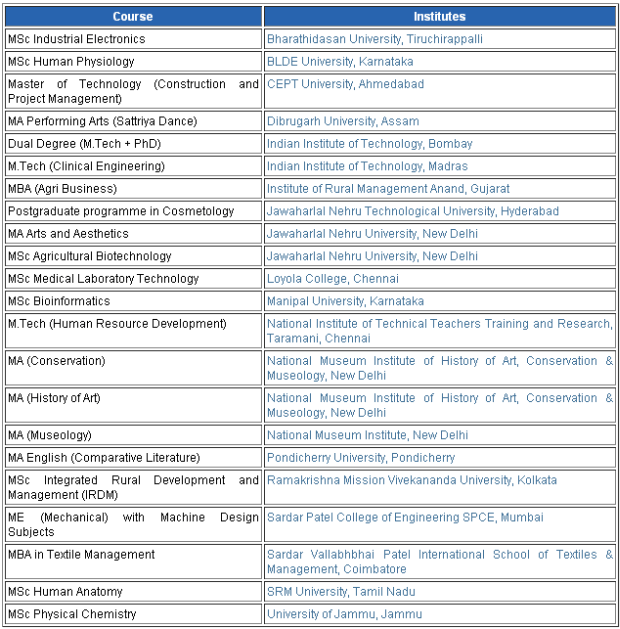

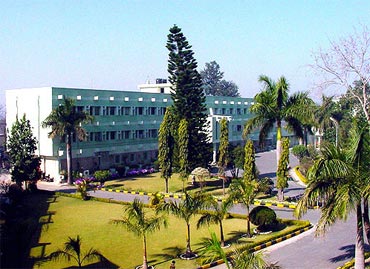



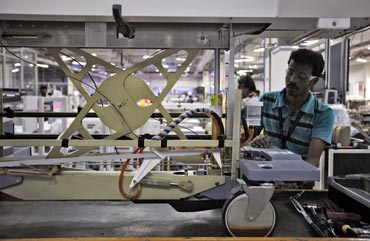

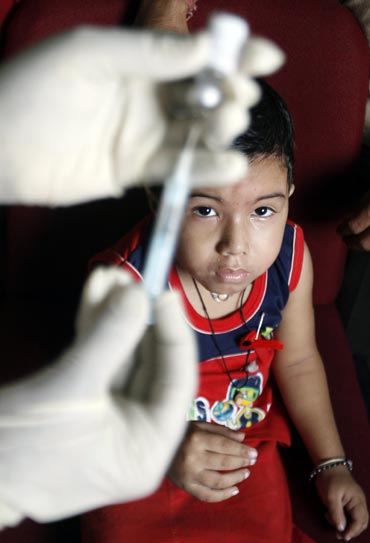
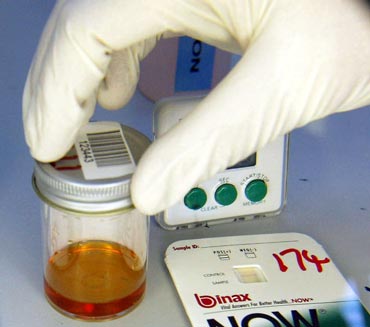

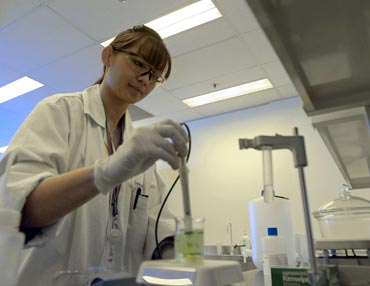
Comment
article